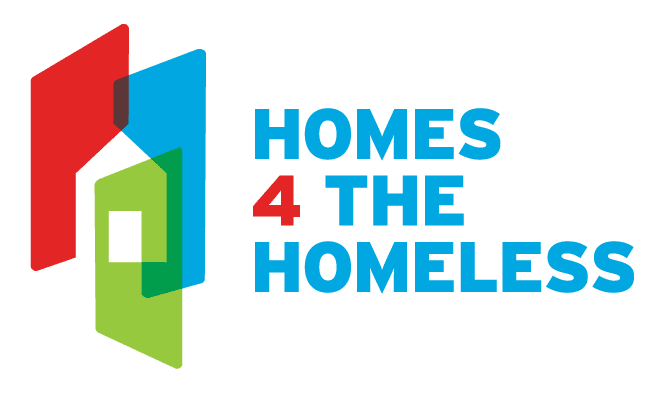Most Americans Blame Personal Choices for Homelessness, Yet Nearly Three-Quarters Say Government Should Do More to Solve It
A new poll conducted by The Associated Press and the University of Chicago found that most Americans hold conflicting views about homelessness.
The poll, which was conducted with 1,121 adults in late August, found that most Americans believe personal choices cause people to become homeless, while nearly three-quarters of survey respondents believe the government should be doing more to address the issue.
It was released at a time when President Donald Trump’s administration seeks to crack down on people living in encampments in the nation’s capital. More than 300 local governments have also passed new laws prohibiting acts associated with homelessness, like sitting, eating, and lying down in public, according to the National Homelessness Law Center.
“It seems like people are a little conflicted,” Bruce Meyer, a professor at the University of Chicago Harris School who helped craft and analyze the poll, told the Associated Press. “I think people probably realize, in part at least, the complexity of what leads people to get in trouble in terms of their economic circumstances. And I think a lot of people are generous at heart and will help people out and think the government should as well, even when individuals aren’t blameless.”
Root Causes of Homelessness
The root cause of homelessness is one issue that many Americans disagree on, according to the poll.
Overall, 60% of Americans believe personal choices cause homelessness. When it was broken down along political leanings, more than three-quarters of Republicans and nearly half of Democrats blamed personal choices for people becoming homeless.
This finding cuts against research that shows the lack of affordable housing in America is the root cause of homelessness. For instance, the Department of Housing and Urban Development cited the lack of affordable housing as the primary driver of the 18% spike in homelessness between 2023 and 2024 in its latest report to Congress. Research from advocacy groups like the National Low Income Housing Coalition and the National Alliance to End Homelessness have drawn the same conclusion.
According to the Texas Homeless Network, the narrative that homelessness is a personal choice is deeply rooted in what’s called the “bootstrap mentality.” This point of view ignores structural inequalities like the lack of affordable housing and health care. It assumes that people who are homeless can escape by simply pulling themselves up by their bootstraps.
“This mentality, which is deeply embedded in American culture, suggests that individuals can achieve success and prosperity through hard work, determination, and resilience, regardless of identity or socioeconomic factors,” the organization wrote in a blog post. “While on its surface this concept may appear motivational, it all too often inspires harmful and misguided beliefs about the causes of poverty and homelessness.”
Addressing Unsheltered Homelessness
Another point of disagreement between Americans is how to address unsheltered homelessness, according to the poll. For example, 43% of Americans say governments should remove homeless encampments from public areas, while just 25% of respondents oppose removing encampments.
Removing encampments is one of the most controversial topics in homeless services. Research has shown that encampment removals are costly, ineffective, and traumatizing for people living outside. For example, research has shown that removing encampments does not reduce local crime rates, as some experts have suggested, and can increase overdose rates of people with substance abuse challenges because of the stress and trauma the operation inflicts.
Even so, many cities have passed laws to make it easier for police and sanitation workers to remove encampments from parks and other public property. A study by the Urban Institute found that cities spend millions on these operations every year, money which could otherwise be diverted to supporting the development of affordable and permanent supportive housing.
Ami Tate, a 43-year-old conservative from California, told the Associated Press that “the government needs to help out” people living in encampments.
“Where are these people supposed to go?” she told the outlet.
Solutions to Homelessness
Americans also appear to be sharply divided over how to solve homelessness, the poll shows.
About 75% of Americans believe federal, state, and local governments have at least a “moderate amount of responsibility” to address poverty and homelessness. That includes majorities of Democrats, Republicans, and Independents, making homelessness one of the major issues that unites political partisans.
When it comes to government spending on homelessness assistance, most Democrats and Independents believe the government is spending too little.
Many Americans also seem to support adding more work requirements for people who need to access services and benefits like Medicaid. For example, 55% of survey respondents said working-age adults who receive Medicaid should be required to prove that they are working. Fewer than one-quarter of respondents said they support programs like Universal Basic Income, which many cities have piloted as a way to lift up people who are impoverished or homeless.
One program that received the majority of support from survey respondents was increasing the child tax credit for low-income families. The child tax credit pays families earning below a certain threshold up to $2,200 per qualifying child. There are additional related tax credits that families can qualify for depending on their tax situation.
How You Can Help
We know what ends homelessness. Housing has, and always will be, the solution to homelessness. Full stop.
Poverty and homelessness are both policy choices, not personal failures. That’s why we need you to contact your officials and tell them you support legislation that:
- Streamlines the development of affordable housing
- Reduces barriers for people experiencing homelessness to enter permanent housing
- Bolsters government response to homelessness
Together, we can end homelessness.
